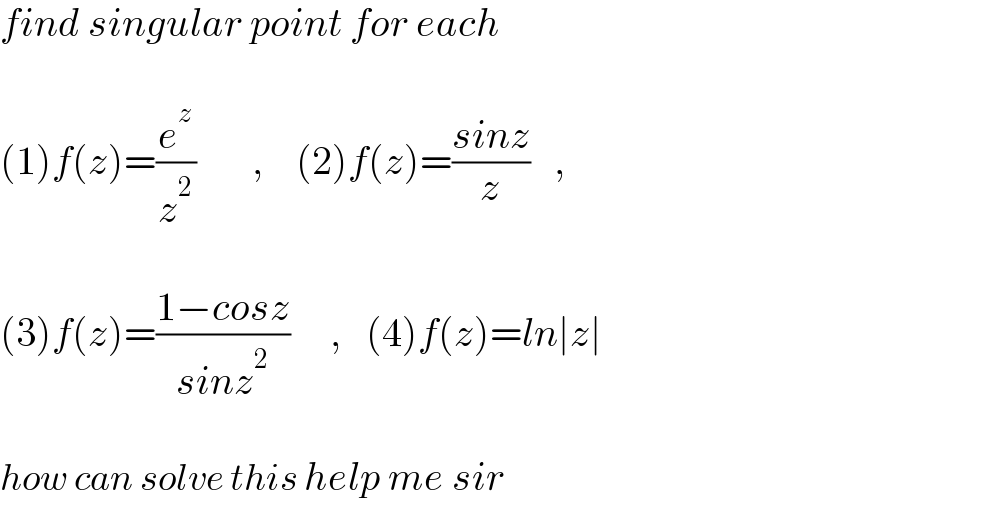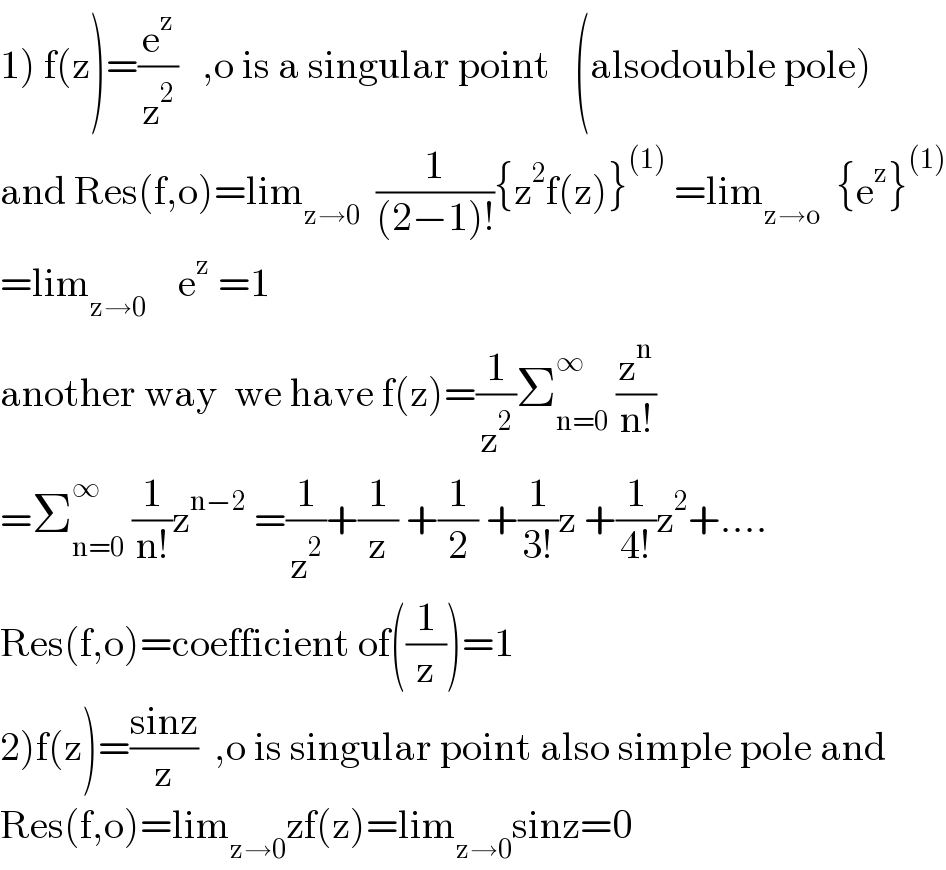
Question and Answers Forum
Question Number 130416 by mohammad17 last updated on 25/Jan/21

Answered by mathmax by abdo last updated on 25/Jan/21

| ||
Question and Answers Forum | ||
Question Number 130416 by mohammad17 last updated on 25/Jan/21 | ||
 | ||
Answered by mathmax by abdo last updated on 25/Jan/21 | ||
 | ||
| ||